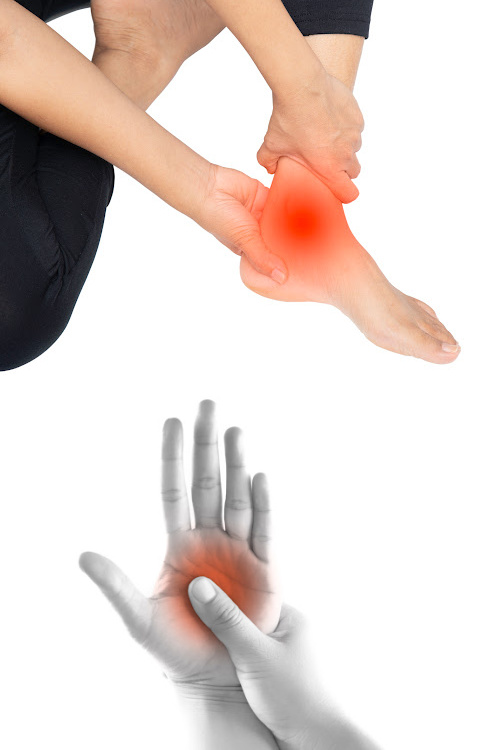Experiencing numbness in your body can be unsettling and uncomfortable. Numbness, also known as paresthesia, manifests as a tingling or prickling sensation that can occur anywhere in the body, often likened to pins and needles or a loss of feeling.
Numbness can affect any part of the body and may resolve on its own in some cases. However, it can also signal a more serious underlying condition that requires attention.
At NextPain Care, we specialize in treating conditions that cause neurological numbness. Our focus is on alleviating chronic pain and inflammation associated with these conditions. We strive to provide relief from numbness when possible, addressing the root neurological factors contributing to the discomfort.
Understanding The Sensation Of Numbness
What Causes Loss Of Sensation?
Medical Conditions Causing Tingling And Sensory Loss
Numbness can arise from various medical conditions, some of which may require medical intervention. While some cases can resolve with rest or lifestyle adjustments, others necessitate targeted treatment. Below are descriptions of medical conditions commonly associated with numbness:
- Sciatica: Characterized by irritation or compression of the sciatic nerve, leading to pain and numbness in the lower back, buttocks, and legs.
- Fibromyalgia: A chronic pain disorder causing widespread pain, tenderness, and occasional numbness in specific areas of the body.
- Peripheral Neuropathy: A nerve disorder resulting in numbness, tingling, and weakness, typically affecting the hands and feet.” to “Peripheral Neuropathy: A condition causing numbness and weakness, often managed through various neuropathy treatment options.
- Multiple Sclerosis (MS): An autoimmune disease affecting the central nervous system, often causing numbness, weakness, and coordination issues.
- Tarsal Tunnel Syndrome: Involves compression of the tibial nerve in the foot, leading to numbness, tingling, and pain in the feet.
- Peroneal Nerve Dysfunction: Affects the fibular nerve in the legs and ankles, causing numbness, tingling, and discomfort in the feet.
- Diabetic Neuropathy: Nerve damage due to diabetes, resulting in numbness, tingling, and pain in the hands and feet.
- Peripheral Artery Disease (PAD): Narrowing or blockage of blood vessels in the legs, reducing blood flow and causing numbness and pain.
- Trigeminal Neuralgia: Sudden, severe facial pain often accompanied by numbness on one side of the face during flare-ups.
These conditions require careful diagnosis and management to alleviate symptoms and prevent further complications.
When To Seek Help For Sensory Impairment
Conventional Treatment Options
Medications And Topical Solutions
Medications are often prescribed to manage numbness, targeting the underlying causes. Over-the-counter pain relievers or prescription medications, such as anti-inflammatory medications for arthritis or pharmaceuticals for nerve-related numbness, can be effective. Topical creams containing ingredients like capsaicin can help relieve localized numbness. These treatments work by reducing inflammation and blocking pain signals, providing much-needed relief.
Physical Therapy
Other Advanced Procedures
In severe cases where other treatments have not alleviated numbness, more advanced procedures may be recommended. These options aim to effectively relieve nerve pressure or repair damaged tissue.
- Steroid injections: Corticosteroid injections can reduce inflammation and relieve pressure on affected nerves, providing significant relief from numbness. These injections are typically administered in a medical setting by a healthcare professional.
- Surgery: For severe injuries or nerve compression, surgery may be considered to repair damaged tissue or relieve nerve pressure, often leading to substantial improvement in symptoms. Surgical procedures are tailored to the specific cause of the numbness to ensure the best possible outcome.
How NextPain Care Treats Sensory Discomfort
Numbness-Related Conditions Managed At NextPain Care
Our treatment options are strategically combined to address the multifaceted nature of the numbness-induced pain caused by various conditions, including:

Peripheral Neuropathy Treatment
Peripheral neuropathy is a condition that can cause severe pain, impacting daily life. At NextPain Care, we use evidence-based practices to provide relief from the painful symptoms of peripheral neuropathy, adhering to the highest standards set by medical...

Tarsal Tunnel Syndrome Treatment
Tarsal tunnel syndrome is a painful disorder that affects the foot and ankle. It develops when the tibial nerve, which runs through a narrow space called the tarsal tunnel, becomes compressed or...
Trust NextPain Care For Your Nerve Relief Needs
Could sciatica be causing your numbness? Find out now.
